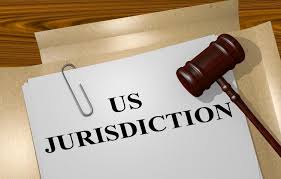We continue our exploration of the latest resolution of a Foreign Corruption Practices Act (FCPA) violation involving the Swiss construction giant, ABB Ltd. The most obvious significance is from the fact that ABB is now the first three-time convicted violator of the FCPA, having prior FCPA resolutions in 2004 and 2010. The moniker of a three-time FCPA violator is certainly not one that any corporation wants to claim, yet here we are. The total fine and penalty for the violation was $315 million, with credited amounts going to South Africa, Switzerland, and Germany for ABB’s violations of those country’s anti-corruption laws. There was also a $75 million fine credited to the Securities and Exchange Commission (SEC). In addition to the SEC Order, the DOJ Press Release and Plea Agreement are also available. Conspicuously missing at this point are resolution documents from South Africa, Switzerland, and Germany.
We are exploring this FCPA enforcement action to see what lessons might be garnered from it. While we are doing so, please keep three key questions in mind: (1) How did ABB obtain such a superior resolution? (2) As a three-time FCPA violator, how did the company avoid a monitor? (3) Why was there no requirement for Chief Compliance Officer (CCO) certification? Today, we consider how ABB was able to obtain such a superior result.
Initially, I should note that question 3 which I have posed all week was answered in the Deferred Prosecution Agreement (DPA), released Wednesday. There is a CCO certification. It was not referenced in the DOJ Press Release or the ABB Plea Agreement.
The (almost) Self-Disclosure
The FCPA Corporate Enforcement Policy discounts up to and including a full declination on self-disclosure. But now, it is about a ‘timely’ self-disclosure. When announcing the Monaco Memo, Deputy Attorney General Lisa Monaco emphasized not only the requirement for self-disclosure but the need for speed in self-disclosure. The DOJ wants speed as well because, “If disclosures come too long after the misconduct in question, they reduce the likelihood that the government may be able to adequately investigate the matter in time to seek appropriate criminal charges against individuals. The expiration of statutes of limitations, the dissipation of corroborating evidence, and other factors can inhibit individual accountability when the disclosure of facts about individual misconduct is delayed.” Additionally, the first factor the DOJ uses in making a determination of whether a monitor will be assigned is “Whether the corporation voluntarily self-disclosed the underlying misconduct in a manner that satisfies the particular DOJ unit or sections component’s self-disclosure policy.”
The sequence around this issue of self-disclosure is every company’s nightmare, a press report comes out and blindsides an organization (think the New York Times (NYT) breaking the Walmart FCPA story.) The detail provided in the Plea Agreement is as insightful as it is instructive. It details that although “within a very short time of learning of the misconduct, the Parent Company [ABB] contacted the Fraud Section and scheduled a meeting to discuss matters under investigation by the Fraud Section and the Parent Company. The Company did not specifically identify the South Africa misconduct in that meeting request, but it disclosed the South Africa misconduct during the scheduled meeting, subsequently presented evidence to the Offices that it intended to disclose the misconduct related to South Africa during the scheduled meeting and did not know of any imminent media reports when the meeting was scheduled. However, before the scheduled meeting occurred and prior to making any such disclosure to the Fraud Section, a media report was published related to the misconduct.”
While I doubt ABB would have been given a full declination if they had timely self-disclosed, this lengthy discussion in the Plea Agreement clearly focuses on the DOJ’s desire for a timely self-disclose. It was also equally probable that it was a factor in the lack of assignment of a monitor. We do not know the length of time between initial notice of the bribery and corruption to the corporate headquarters of the Board, we do know the gold standard for self-reporting which was Cognizant Technology Solutions, who self-disclosed two weeks after the initial report to the company’s Board of Directors. (Also recall that Cognizant had C-Suite involvement in the bribery scheme.)
This fact pattern also demonstrates why the need for speed in self-disclosure is so critical. A company can never know in what forum, who or how information about bribery and corruption will be made public. In Walmart’s case it was above the fold, on the front page of the Sunday NYT. In addition to the DOJ’s prescription for timely reporting, this matter demonstrates the public relations disaster which will befall a company which sits on a self-disclosure. Imaginably the answer is the one suggested by Matt Kelly, writing in Radical Compliance, who said, “So perhaps the lesson here is that when you have an FCPA issue, just announce it on Twitter and [hash] tag the Criminal Division.”
Extensive Cooperation
This component of the FCPA Corporate Enforcement Policy is a bit harder to suss out as the Plea Agreement stated that ABB received credit for extraordinary cooperation based on the following: “(i) promptly providing information obtained through its internal investigation, which allowed the Offices to preserve and obtain evidence as part of their own independent investigation; (ii) making regular and detailed factual presentations to the Offices; (iii) voluntarily making foreign-based employees available for interviews in the United States; (iv) producing relevant documents located outside the United States to the Offices in ways that did not implicate foreign data privacy laws; and (v) collecting, analyzing, and organizing voluminous evidence and information that it provided to the Offices, including the translation of certain foreign language documents.”
However, once again, it was Kelly who identified the one piece of information which took what is now this standard recitation of extraordinary cooperation to a truly high level of ‘extraordinary’. He pointed out that in the SEC Order, it stated, “ABB’s cooperation included real-time sharing of facts learned during its own internal investigation.” This meant “ABB was sharing information with regulators as quickly as it found those facts, without necessarily knowing how such admissions might affect its overall case and settlement chances.” He then opined, “When you don’t know the full extent of your sins and the punishment to follow, but you cooperate with regulators anyway — that’s an impressive commitment to the culture of compliance that the Justice Department wants to see.”
It also ties directly into what DAG Monaco said in the Monaco Doctrine, which noted, “it is imperative that Department prosecutors gain access to all relevant, non privileged facts about individual misconduct swiftly and without delay.” [emphasis supplied] This now means, “to receive full cooperation credit, corporations must produce on a timely basis all relevant, non-privileged facts and evidence about individual misconduct such that prosecutors have the opportunity to effectively investigate and seek criminal charges against culpable individuals.” If a company fails to meet this burden, it will “place in jeopardy their eligibility for cooperation credit.” The DOJ goes the next step by placing the burden on companies to demonstrate timeliness, stating they “bear the burden of ensuring that documents are produced in a timely manner to prosecutors.”
Extensively Remediate
Finally, were the actions by ABB in their remediation. The Plea Agreement reported that ABB “engaged in extensive remedial measures, including hiring experienced compliance personnel and, following a root-cause analysis of the conduct described in the Statement of Facts, investing significant additional resources in compliance testing and monitoring throughout the organization; implementing targeted training programs, as well as on-site supplementary case-study sessions; conducting continuing monitoring and testing to assess engagement with new training measures; restructuring of reporting by internal project teams to ensure compliance oversight; and promptly disciplining employees involved in the misconduct.” This final point was expanded on in the SEC Order which reported that all employees involved in the misconduct were terminated.
At this point, there are not many specific components of the ABB remediation available, but we do know that ABB was given credit for hiring “experienced compliance personnel,” starting with the hiring of Natalia Shehadeh, SVP and Chief Integrity Officer, and then allowing Shehadeh to hire a dream team of compliance professionals to work with her. I would go so far as to say Shehadeh and her team are Compliance Dream Team II as the first (which Shehadeh was a part of) was the Compliance Dream Team created by Billy Jacobson at Weatherford to get that company through its FCPA and Oil-For-Food enforcement actions.
Join us tomorrow where we conclude our look at the ABB FCPA resolution and posit why it is a complete win for compliance.








